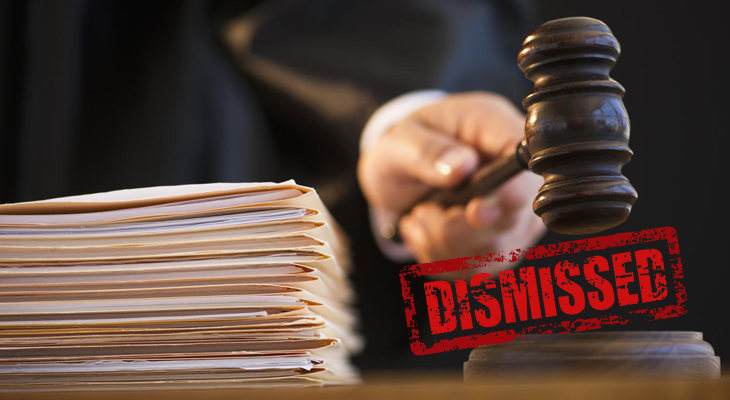If you’ve recently been arrested and you’re asking, “Can a DWI be dismissed?”, you’re not alone—and the answer may surprise you. While a DWI charge is serious and potentially life-altering, dismissal is absolutely possible in many situations. But it doesn’t just happen. It takes strategy, legal precision, and often, the help of an experienced attorney who knows how to pick apart the prosecution’s case.
In this guide, we’ll take you deep into the world of DWI dismissals: when they happen, how they happen, and what real people have experienced in the courtroom. From bad breathalyzer results to traffic stops that never should have occurred, you’ll see why “guilty” is not always the only outcome.
Let’s answer the burning question: Can a DWI be dismissed? Yes, it can—but whether yours will depend on the facts, the evidence, and the actions you take next.

Why Prosecutors File DWI Charges So Quickly
When someone is arrested for driving while intoxicated, most prosecutors move fast. They file charges based on the initial evidence: officer observations,field sobriety tests, and chemical test results. But as any seasoned defense attorney will tell you, that evidence is often flawed.
The legal system isn’t perfect. Police make mistakes, machines malfunction, and people get wrongly accused. So while a prosecutor might feel confident in filing charges early on, it doesn’t mean the case can’t fall apart later under scrutiny.
Real Case Example: The Broken Breathalyzer
Jared, a 26-year-old mechanic from Fort Worth, got pulled over for a rolling stop. The officer claimed he smelled alcohol and asked Jared to take a breath test. Jared blew a 0.11% BAC—just over the legal limit.
Here’s the twist: Jared’s DWI was dismissed after his attorney discovered that the breathalyzer machine hadn’t been calibrated for months. The officer who used it failed to log a required maintenance check. The prosecution’s main piece of evidence was tossed out, and the case crumbled.
So if you’re wondering, can a DWI be dismissed because of faulty equipment? Absolutely.
Common Reasons Why a DWI Can Be Dismissed
While each case is different, there are several recurring themes that lead to DWI dismissals. Let’s break them down:
1. Illegal Traffic Stops
Officers can’t pull someone over just because they feel like it. They must have reasonable suspicion that a law was being broken. If your attorney can prove the stop was unlawful, all evidence gathered after it—including breath or blood tests—might be inadmissible in court.
2. Lack of Probable Cause for Arrest
Even after a legal stop, police need probable cause to make an arrest. This means more than just a hunch. If your behavior didn’t justify a DWI arrest and there’s no clear evidence of intoxication, your lawyer may push for dismissal based on that lack of cause.
3. Faulty or Improper Field Sobriety Tests
Field sobriety tests are not scientific. They rely on the officer’s subjective judgment. Conditions like fatigue, nervousness, medical issues, or uneven pavement can affect your performance. If the test was administered incorrectly—or biased observations are proven—your DWI may be dismissed.
4. Breath or Blood Test Errors
Chemical testing is supposed to be precise. But in reality, machines break, human error occurs, and results get tainted. If your defense team uncovers improper storage, labeling mistakes, or uncalibrated machines, the case may fall apart.

5. Chain of Custody Issues
If your blood sample wasn’t tracked properly, or if paperwork went missing between collection and lab analysis, your attorney can challenge its validity. That can lead to the test being excluded—removing a central pillar of the prosecution’s case.
How a DWI Defense Attorney Builds the Case for Dismissal
To secure a dismissal, your defense attorney must know the terrain inside and out. Here’s how an experienced lawyer systematically builds a strategy to challenge a DWI charge.
Step 1: Review the Police Report and Dashcam Footage
Was the traffic stop justified? Did the officer follow proper protocol? A good defense attorney requests all reports, audio recordings, and dashcam or bodycam footage to look for inconsistencies, rights violations, or gaps in the arrest timeline.
Step 2: Analyze the Field Sobriety Tests
Was the test administered correctly? Were the instructions clear? Was the location suitable? Attorneys often bring in experts to show how these tests can produce false positives due to non-alcohol-related issues.
Step 3: Scrutinize the Chemical Test Evidence
Attorneys ask for maintenance logs, lab certifications, and technician credentials. If the breathalyzer hasn’t been serviced correctly—or if lab results were mishandled—that evidence could be thrown out.
Step 4: File Pretrial Motions
This is a critical phase. Attorneys often file Motions to Suppress evidence or even Motions to Dismiss the charges altogether. If successful, these motions can result in part—or all—of the case being dismantled before it reaches trial.
Prosecutors Don’t Want Weak Cases
Prosecutors aren’t looking to lose cases in front of a jury. If your DWI defense attorney presents strong pretrial arguments, many prosecutors would rather dismiss the case than risk losing publicly.
This is especially true for first-time offenders, or when there are clear weaknesses in the evidence. Dismissals also occur more often when defense attorneys demonstrate confidence, preparation, and a willingness to go to trial.
Lesser-Known Paths to DWI Dismissal
Beyond challenging the facts of the case, there are alternative routes that can lead to dismissal—especially for people with clean records or special circumstances.
Deferred Prosecution Agreements
In some counties, prosecutors offer deferred prosecution programs. If you complete the program—which might include alcohol education, community service, or probation—the charge is dismissed at the end. You must stay arrest-free during the program, but it’s often a way to avoid conviction altogether.

Diversion Programs for Veterans or First-Time Offenders
Certain jurisdictions have diversion courts specifically for military veterans, young adults, or people facing their first criminal charge. If accepted, and you complete the requirements, your DWI charge may be dismissed.
Lack of Witnesses
Sometimes, key prosecution witnesses—like the arresting officer—become unavailable. If a trial can’t proceed without them, the court may dismiss the case due to lack of evidence.
Can a DWI Be Dismissed After Charges Are Filed?
Yes—and it happens more often than people think. Charges aren’t set in stone. Prosecutors have the discretion to dismiss a DWI at any stage, even weeks or months after filing.
But dismissals after filing usually happen because of pressure from the defense. That pressure might come in the form of:
- Expert testimony that undermines the evidence.
- Legal motions that highlight constitutional violations.
- A lack of cooperation from essential witnesses.
- Negotiations that reveal better options than going to trial.
So if you’re thinking, “My case already went to court, can a DWI be dismissed now?”—the answer is still yes, depending on the facts and the defense strategy.
Can a DWI Be Dismissed Without a Lawyer?
Technically, yes. But realistically, the chances are slim.
The truth is: prosecutors don’t fear self-represented defendants. They know most people don’t understand court procedures, legal rules, or how to file effective motions. A well-trained DWI defense attorney, on the other hand, brings experience, legal knowledge, and the ability to exploit weaknesses in the prosecution’s case.
You wouldn’t perform surgery on yourself—so why try to dismantle a criminal case without professional help?
Real-Life DWI Dismissal: A Night Gone Wrong
Kendra, a 40-year-old teacher in Austin, got pulled over after leaving a school fundraiser. She admitted to having one glass of wine. The officer asked her to perform field sobriety tests and arrested her for DWI. Her breath test came back at 0.07%—under the legal limit.
Still, prosecutors filed charges.
Kendra hired a DWI defense attorney, who immediately requested the bodycam footage. It showed the officer pushing Kendra to perform the tests even though she expressed back pain. The footage also proved she was alert, cooperative, and driving safely.
Her attorney filed a motion to dismiss based on lack of probable cause and inappropriate field testing. The judge granted it, and the case was dismissed.
So again, can a DWI be dismissed? Kendra’s case is proof that it can.
What Happens After a DWI Dismissal?
A dismissal clears the criminal charge—but doesn’t always erase the arrest record. That’s where expungement or record sealing comes in.
In Texas and many other states, if your DWI case was dismissed or you were found not guilty, you may be eligible to expunge the arrest from your record. This can:
- Prevent employers from seeing it in background checks.
- Erase the stigma from your driving record.
- Give you a clean slate, legally and professionally.
But the process isn’t automatic. You must file specific paperwork, meet deadlines, and sometimes appear in court. An attorney can walk you through this to make sure your dismissal actually clears your name.

Final Thoughts: Can a DWI Be Dismissed? Yes—But You Need to Act Fast
Let’s bring it back to the original question: Can a DWI be dismissed? The answer is a confident yes—but you’ll need strategy, experience, and urgency on your side.
Dismissals happen when officers make mistakes, when tests are unreliable, when constitutional rights are violated, and when evidence falls short. They also happen when skilled attorneys know how to push the right legal levers.
So if you’re facing a DWI charge, don’t assume all is lost. The system isn’t perfect, and there are real opportunities to protect your record, your job, and your future.
Talk to a DWI defense attorney. Learn your options. And remember—dismissal isn’t a miracle. It’s a well-executed legal strategy built on facts, timing, and precision.

